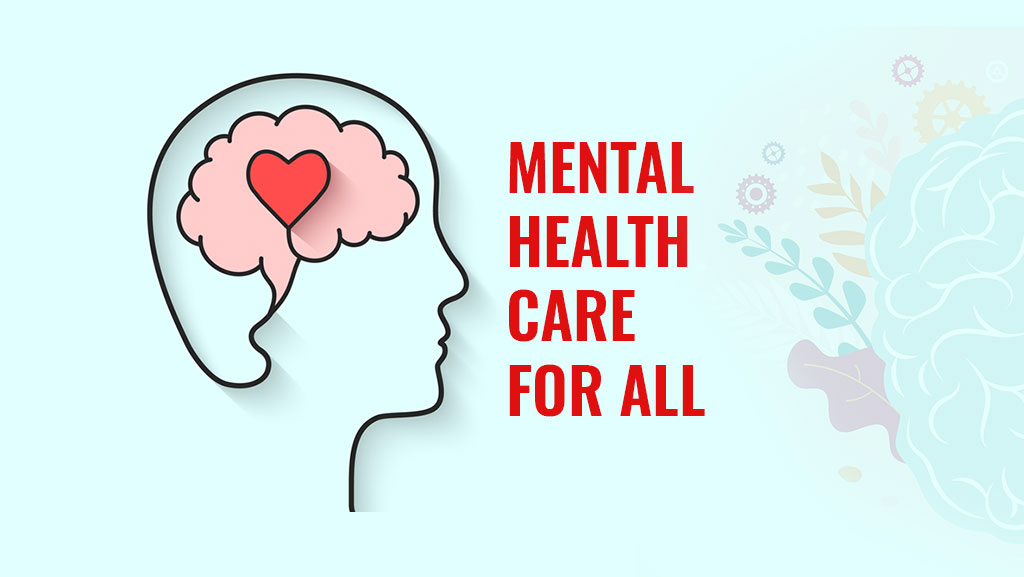Reliable Mental Health Services: Solutions for Every Situation
Reliable Mental Health Services: Solutions for Every Situation
Blog Article
Discovering the Link In Between Nutrition and Mental Wellness Improvement
In the realm of psychological health, the impact of nutrition is a topic of expanding rate of interest and study. The detailed interplay in between what we eat and just how we feel expands much beyond plain physical health and wellness. The implications of our nutritional options on psychological health have been progressively acknowledged by health professionals and scientists alike. As we navigate the complex landscape of modern-day way of livings, revealing the nuanced partnership between nutrition and psychological wellness improvement may hold the trick to opening a deeper understanding of our cognitive and emotional resilience.
Impact of Food on Mood
The connection between dietary choices and mood policy is a critical facet of understanding the impact of food on mental well-being. Research has actually revealed that particular foods can affect natural chemical task, impacting mood and moods. For example, foods rich in omega-3 fats, such as fatty fish, walnuts, and flaxseeds, have actually been linked to lower rates of clinical depression and boosted state of mind guideline.
Additionally, intricate carbs discovered in whole grains, fruits, and vegetables can help manage blood sugar levels, which subsequently can have a positive effect on mood security. On the other hand, diets high in processed foods, sugar, and hydrogenated fats have actually been connected with an enhanced threat of clinical depression and mood disorders.
Moreover, the gut-brain link plays a considerable duty in state of mind guideline. The gut microbiome, affected by the foods we consume, can communicate with the mind with the gut-brain axis, influencing mood, stress degrees, and overall psychological well-being. Therefore, making conscious and nutritious dietary selections is necessary for maintaining a healthy and balanced and balanced state of mind.

Important Nutrients for Anxiousness

Furthermore, the amino acid tryptophan, discovered in foods like turkey, eggs, and nuts, is a forerunner to serotonin production, a natural chemical known for its function in advertising sensations of calmness and wellness. Vitamin B facility, especially B6 and B12, are additionally important for preserving a healthy and balanced nervous system and might help in reducing stress and anxiety signs and symptoms.
Incorporating these necessary nutrients right into a well-balanced diet plan can have a favorable effect on handling stress and anxiety and boosting overall mental health and wellness.
Dietary Methods for Clinical Depression

One nutritional approach for handling clinical depression is concentrating on foods abundant in omega-3 fats, such as fatty fish, flaxseeds, and walnuts. Omega-3 fats have actually been linked to decreasing swelling in the mind and improving natural chemical function, which can positively impact mood. Additionally, increasing the intake of fruits, vegetables, entire grains, and lean proteins while lowering the intake of refined foods and sugars might assist in reducing depressive signs and symptoms.
Additionally, maintaining appropriate levels of vitamin D, either with sunshine direct exposure or supplements, is vital for supporting mental health and wellness. Vitamin D shortage has been related to an increased danger of depression, making it vital to ensure adequate consumption of this nutrient. By incorporating these nutritional strategies, individuals may efficiently enhance traditional treatments for clinical depression and improve their general health.
Gut-Brain Axis and Mental Health
Focusing on the complex link between the intestinal system and psychological health, the Gut-Brain Axis plays a crucial role in influencing cognitive functions and psychological health. The Gut-Brain Axis is a bidirectional communication network between the central nerve system and the enteric nerves, connecting the emotional and cognitive centers of the brain with peripheral digestive features. This axis is managed by an intricate interplay of neural, immune, endocrine, and metabolic pathways.
Research study suggests that the structure of intestine microbiota, the varied area of microorganisms residing in the intestinal system, can have an extensive effect on psychological wellness. Inequalities in digestive tract microbiota, known as dysbiosis, have been connected with conditions such as depression, anxiety, and even neurodegenerative conditions. The intestine microbiota go to the website plays a critical duty in the manufacturing of natural chemicals like serotonin, which is vital for managing state of mind and emotional responses.
Preserving a healthy intestine microbiota with a well balanced diet regimen rich in fiber, fermented foods, and probiotics is crucial for sustaining mental health and wellness (Mental Health Services). Strategies intended at optimizing the Gut-Brain Axis provide appealing avenues for boosting emotional health and cognitive feature
Nourishment's Duty in Cognitive Function
Offered the considerable impact of the Gut-Brain Axis on mental wellness, comprehending just how nutrition influences cognitive feature becomes vital in promoting general health. Nutrition plays a critical role in cognitive feature by providing necessary nutrients that support brain wellness and optimal performance.
Trick nutrients such as omega-3 fatty acids, anti-oxidants, minerals, and vitamins are understood to boost cognitive abilities, including memory, emphasis, and analytic abilities. Omega-3 fatty acids, discovered in fatty fish like salmon and nuts, have actually been connected to improved memory and cognitive function. Anti-oxidants, plentiful in fruits and veggies, aid shield brain cells from damage triggered go right here by cost-free radicals, thus preserving cognitive function.
Additionally, a well balanced diet regimen rich in entire grains, lean healthy proteins, fruits, and veggies can positively affect cognitive feature by maintaining blood sugar levels and offering continual energy to the brain. On the other hand, diets high in processed foods, saturated fats, and sugars have actually been related to cognitive decrease and damaged mind feature. As a result, making notified dietary options is necessary for preserving ideal cognitive feature and general mental wellness.
Conclusion
To conclude, the relationship in between nutrition and psychological wellness is diverse and intricate. The impact of food on mood, essential nutrients for anxiousness, nutritional techniques for depression, the gut-brain axis, and nourishment's duty in cognitive function all play essential roles in psychological wellness. Understanding the link between nutrition and mental health renovation is necessary for promoting total health and attending to mental wellness problems. Further study and awareness around are needed for advancing treatments and treatments.
The implications of our nutritional discover this info here choices on mental health have been progressively recognized by health and wellness specialists and scientists alike. As we browse the complex landscape of contemporary way of livings, uncovering the nuanced partnership between nourishment and mental health renovation might hold the trick to unlocking a deeper understanding of our emotional and cognitive strength.
Structure upon the necessary nutrients that support mental health, especially in managing stress and anxiety problems, the focus now shifts towards checking out nutritional strategies for dealing with anxiety.Concentrating on the detailed link between the intestinal system and mental health and wellness, the Gut-Brain Axis plays a critical function in influencing cognitive features and emotional health (Mental Health Services). Comprehending the connection between nutrition and mental health improvement is necessary for advertising general health and attending to psychological health and wellness problems
Report this page